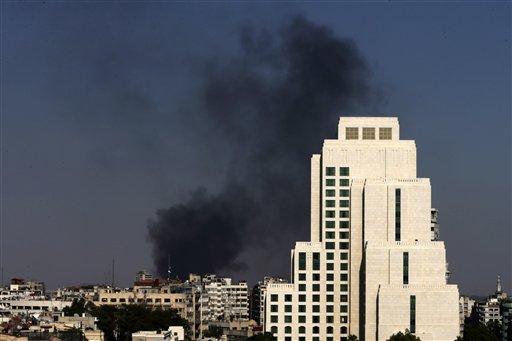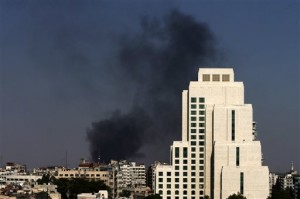

Associated Press
WASHINGTON — President Barack Obama on Wednesday declared unequivocally that the United States has “concluded” that the Syrian government carried out a deadly chemical weapons attack on civilians last week.
Obama did not present any direct evidence to back up his assertions. He said he is still evaluating possible military options in retaliation for the attack that killed hundreds near Damascus, but vowed that any American response would send a “strong signal” to Syrian President Bashar Assad.
“We have concluded that the Syrian government in fact carried these out,” Obama said during an interview with PBS’ NewsHour. “And if that’s so, then there need to be international consequences.”
Earlier Wednesday, administration officials said they would take action against the Syrian government even without the backing of allies or the United Nations because diplomatic paralysis must not prevent a response to the alleged chemical weapons attack outside the Syrian capital. The five permanent members of the U.N. Security Council failed to reach an agreement Wednesday on a draft resolution from the British seeking authorization for the use of force. Russia, as expected, objected to international intervention.
The president said he was not seeking a lengthy, open-ended conflict in Syria, indicating that any U.S. response would be limited in scope. But he argued that Syria’s use of chemical weapons not only violated international norms, but threatened “America’s core self-interest.”
“We do have to make sure that when countries break international norms on weapons like chemical weapons that could threaten us, that they are held accountable,” he said.
Laying out a legal justification for a U.S. response, Obama said Syria was violating the Geneva Protocols, an agreement signed in 1925 after World War I to ban the use of chemical gases. The White House has also cited the Chemical Weapons Convention, a 1992 agreement that builds on the Geneva Protocols by prohibiting the development and stockpiling of chemical weapons.




